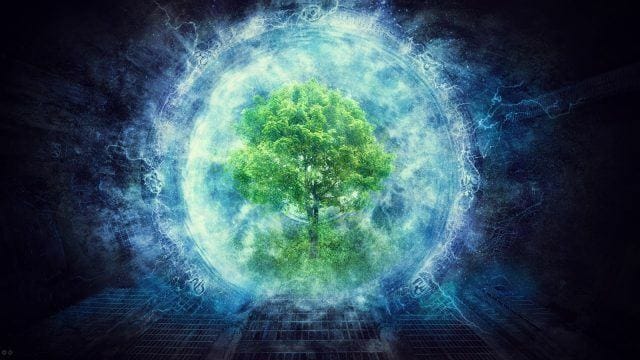An Ambitious Look at the Problem of Consciousness

I’ve just been listening to Sam Harris talk about consciousness > on his podcast. He’s discussing it with David Chalmers, a renowned expert on the topic. The conversation is quite excellent.
But I am troubled by it.
I think the answer might be far more simple than people are making it out to be, and I’m going to attempt to explore some of the initial intuitions I’m having around this.
Honestly, my approach could be complete rubbish.
Very smart people have been thinking about this problem for centuries, and that work continues. So the chances of me actually having a valuable insight here seem low. But I’m going to rush in as if that were not the case.
Let’s begin.
Evolution is the prime force that advances human development. When we have questions about why something exists within us we should probably look there first
Evolution seems to enjoy the advantages of social groups. They provide the infrastructure for safe interactions at scale, and therefore the ability to propagate genetic material en masse
Social groups require certain capabilities be present in the participants, with the most important being the concept of individual responsibility, which enables blame and praise
The notions of responsibility, blame, praise, shame, etc., all require a feeling of self-awareness within individuals, and it would seem that a certain amount of this sensation is required to experience them
Animals that have enough of this infrastructure, arranged in a certain way, get the initial advantages of groups, and as that functionality get more advanced the advantages become more pronounced (apes vs. humans, for example)
Because this infrastructure yields the benefits of social responsibility once sufficiently advanced, there is evolutionary pressure to create it
The mechanism itself will be rather uninteresting once understood, as it’ll likely be shown to be little more than a particular mixture of multiple rudimentary functions, which then produce a sensation of self-awareness, and which in turn grants the advantages
Let us call this the Social Pressure Theory of Consciousness.
So, a couple of points on this:
The idea that consciousness is an illusion is somewhat silly to me, as Harris points out in his coverage of the topic. If there is one thing that cannot be an illusion, it’s the fact that we experience things. I think this is part of the problem I call the Experience vs. Reality problem, which I talk about here >.
The short version is that magic tricks are not real magic, but they do produce the experience of magic. An actual experience. If someone is wowed by an amazing trick, that is real. It’s the same with experiencing God. Did they experience God? Yes. Was it actually God? No.
We shouldn’t confuse the two. And I think it’s clearly the same with consciousness. On this point I agree with Dennett, who says it’s simply a bag of tricks. Yes it is. Just like the magic trick that amazes us, the explanation will pull the mystery from it, but it won’t make it any less enjoyable to experience.
This of course still hand-waves around the details of mechanism. We still don’t know what parts of the brain are responsible for this, or how they work exactly. But those are, well…details.
The most important questions are not related to mechanism; they’re related to purpose and explanation. And that’s what this explanation provides.
Addressing Chalmers’ Hard Problem
David Chalmers, who Sam did his podcast with, came up with the Hard Problem of Consciousness, which ultimately comes down to this:
We get why things happen, i.e., because of a mechanism that produces a function, but why do we experience things. Why is it so subjective in the way they happen?
First off, I find it an interesting question, but I don’t see it as foundational. I think it’s likely to be explained via epiphenomenalism, i.e., subjective being is byproduct of the engine of moral responsibility.
But I could be wrong of course.
Summary
Evolution "likes" social contracts because they create harmonious societies that result in lots of procreation
Natural Selection therefore favors animals that achieve a particular combination of rudimentary brain systems that somehow create the sensation of self-awareness, which grant the ability to have moral responsibility, blame, and praise
We don’t know the mechanism for this yet, but we can be pretty sure that it’s a lot like a magic trick where it produces gasps when performed, but will be a series of wires and hollow boxes once revealed
I think the hard problem (subjective experience) will turn out to be a necessary (or at least common) byproduct of the mechanism that produces moral responsibility
This shouldn’t make consciousness any less interesting. It’ll just be one more thing about the world that we understand.
Notes
Image from dreamcatcherreality.com.
Evolution is just a single-word shortcut for Natural Selection, of course.